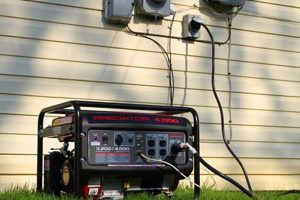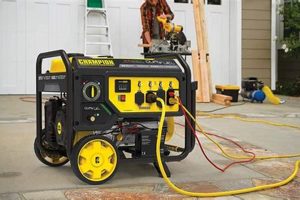
Powering a home with a portable generator involves safely connecting the generator to a home’s electrical system, allowing it to supply electricity during power outages or in off-grid situations. This typically requires... Read more »

Powering a home with a portable generator involves using this compact power source as a backup during utility outages or in locations lacking traditional grid access. A typical setup connects the generator... Read more »

Standby power solutions offer critical functionality during outages, ranging from smaller, gasoline-powered portable units to permanently installed, automatic standby generators fueled by natural gas or propane. Portable units offer a cost-effective approach... Read more »

A top-tier mobile power source designed for residential use provides essential backup electricity during outages, ensuring critical appliances and systems remain operational. This capability ranges from powering refrigerators and lights to sump... Read more »

Supplying residential electricity through a compact, mobile power source offers a crucial solution during outages caused by natural disasters or grid failures. This approach involves connecting the generator to a home’s electrical... Read more »

High-quality, mobile power sources capable of supplying electricity to an entire residence during outages represent a significant advancement in power solutions. These units offer a comprehensive backup power option, enabling homeowners to... Read more »

Supplying backup power to a residence during outages involves linking a mobile electricity-generating device to the home’s electrical system. This typically requires a transfer switch, a device that safely isolates the home’s... Read more »

This equipment allows homeowners to safely connect a portable generator to their home’s electrical system, powering essential circuits during a power outage. It acts as a bridge, disconnecting the home from the... Read more »

A compact, mobile power source capable of supplying electricity to an entire residence during outages represents a significant advancement in power reliability. Imagine a scenario where a severe storm disrupts the power... Read more »

A weatherproof shelter for canines can be enhanced with a compact, mobile power source to provide climate control and lighting. For example, a small, insulated structure could house a dog comfortably, while... Read more »


